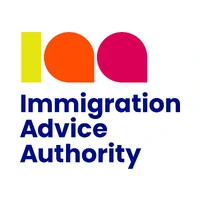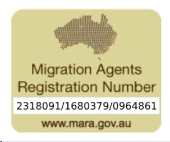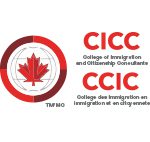| Visa Type | Processing Time |
| Tier 2 (General) | 2 to 3 weeks |
| Tier 2 (Intra-company Transfer) | 2 to 3 weeks |
| Tier 5 (Temporary Worker) | 3 to 8 weeks |
| Tier 1 (Exceptional Talent) | 2 to 4 weeks |
| Start-up Visa | 3 to 8 weeks |
| Innovator Visa | 3 to 8 weeks |
The fees applicable for some of the most popular UK work visas is as follows:-
| Type of visa | Healthcare Surcharge | Application Fee | Personal Funds |
| Start-up Visa | UKP 624 /year | UKP 378 | at least UKP 1,270 |
| Graduate Work Visa | UKP 624 /year | UKP 715 | – |
| Domestic Worker Visa | – | UKP 531 | – |
| Minister of Religion Visa | UKP 624 /year | UKP 625 | at least UKP 1,270 |
| Youth Mobility Scheme | UKP 470 /year | UKP 259 | at least UKP 2,530 |
| Skilled Worker Visa | UKP 624 /year | UKP 625 - 1,423 subject on your situation | at least UKP 1,270 |
| Global Business Mobility Worker Visa | UKP 624 /year | UKP 259 | at least UKP 1,270 |
| Temporary Worker Visa | UKP 624 /year | UKP 259 | at least UKP 1,270 |
Our Accreditations | |||
 |  |  |  |
Explore what Global Citizens have to say about Y-Axis in shaping their future
UK Work dependent Visa
Y-Axis Client Priyanka applied for US De
Read More...
UK Skilled Worker Visa
Anjali Sahani's journey with Y-Axis was
Read More...
UK Skilled Worker Visa
Y-Axis made my UK Skilled Worker Visa jo
Read More...
You need to score 70 points to be eligible for a UK Work Visa. To get a UK work visa, you must apply online and pay application fees (different for every visa type) and any surcharges like Immigration Health Surcharge. You also need to submit all your relevant documents as asked, along with supporting documents in the sequence prescribed by the UK Home Office. You must also attend related appointments to give biometric information when required.
Note that some UK work visas are more challenging, while some are easy to get. Remember, each UK work visa has a different requirement. In most cases, as the applicant for a UK work visa, you must have a job offer from a licensed sponsor at the minimum and also meet salary requirements.
Some UK work visas don’t require you to have a job offer. These include the High Potential Individual Visa, Graduate Visa, and Global Talent Visa.
| Category | Maximum points |
| Job offer (mandatory) | 20 points |
| Job at appropriate skill level (mandatory) | 20 points |
| English speaking skills (mandatory) | 10 points |
| Salary of up to UKP 26,000 (tradeable) | 10 points |
| Above or relevant PhD in a STEM subject (tradeable)
| 10 points |
| Total | 70 points |
Yes, you can switch to a Skilled Worker Visa from another UK visa if you live in the UK under a visa category that allows you to change; this includes a Tier 2 ICT (Intra Company Transfer) visa. However, as mentioned above, you must score 70 points to switch to the skilled worker visa category.
For settlement in the UK, you need to spend an unbroken period of 5 years in the UK under Skilled Worker Visa. This can be combined with your stay in the UK with other visa categories such as Global Talent Visa, Tier 2 Minister of Religion Visa, Tier 2 Sportsperson Visa, Innovator Visa, Tier 2 General Visa, Representative of Overseas Business Visa, and Tier 1 Migrant Visa excluding Tier 1 (Graduate Entrepreneur visa).
Your stay in the UK under any other visa category may not be counted for continuous residence requirements in the UK.
Yes, because there is no need for a job to be on the Shortage Occupation List for approval of your Skilled Worker visa application. There are certain jobs on the shortage occupation list, like engineers, scientists, and teachers, and for your skilled worker visa application to be approved for these, you need to meet the minimum salary threshold.
Note, since December 2020, there’s no need for UK employers to advertise a role and declare that there are no suitable UK citizens or settled workers who are fit for the job. If you, as a migrant worker, are seeking a skilled worker visa and have a particular skill set or experience, there’s no reason you can’t get a ‘certificate of sponsorship’ for a skilled worker visa.
The key difference is whether or not the UK Home Office approves a sponsor to issue a ‘certificate of sponsorship’ for a migrant worker like you. Also, what matters is that employing a migrant worker is a commercial decision by the employer.
A ‘Certificate of Sponsorship’ is essential for a Skilled Worker visa application. The UK-based employer issues a ‘virtual’ document that contains information about the applicant. These include passport details and your job role as a visa applicant.
By issuing a ‘Certificate of Sponsorship,’ the UK-based employer commits to sponsor the skilled worker visa applicant for that specific role. Any changes to the ‘Certificate of Sponsorship,’ such as changes in job title, need to be reported to the UK Home Office. Sometimes, the UK Home Office must approve the change before making it official.
Also, the UK-based employer must be approved with a Sponsor Licence by the UK Home Office to issue a ‘Certificate of Sponsorship.’ Every employer with a Sponsor Licence can log in to the Sponsor Management System with credentials. The Sponsor Management System is a UK Home Office online portal that an approved UK employer can use to assign and manage ‘Certificates of Sponsorship.’
There are 2 types of ‘Certificates of Sponsorship’: Defined CoS and Undefined CoS. The Defined CoS (‘DCoS’) is issued for Skilled Worker visa applications submitted outside the UK. The job applicant is outside the UK or is in the UK on a visitor visa that does not allow switching inside the UK. Employers must request each DCoS from the UK Home Office before assigning it to the skilled worker visa applicant. These are generally approved within 1 working day.
The Undefined CoS is for Skilled Worker visa applications submitted inside the UK. It means the visa applicant is inside the UK when applying. Also, the applicant is in the UK on a visa that allows for a switch to another visa type or extension of stay, like a Tier 2 or Tier 4 visa.
You can apply for a Skilled Worker visa extension as many times as you wish while staying in the UK, provided you are eligible as per the Skilled Worker Appendix by the UK Home Office. You can also switch your job role as many times while working for your current UK employer. You don't need to apply for a change of employment if your new job role has the same SOC code as your earlier job.
While living in the UK on a Skilled Worker visa, you can also switch your employer. You are required to submit a change of employment application with the UK Home Office. While your application is being processed with the Home Office, you can continue to work in your current job.
You can also study in the UK while working on a Skilled Worker visa. If your studies will help enhance your skill set, thereby improving your career prospects in the UK, you are free to study. There is no limit to the number of hours you wish to spend studying in the UK, as long as it doesn’t interfere with your job.